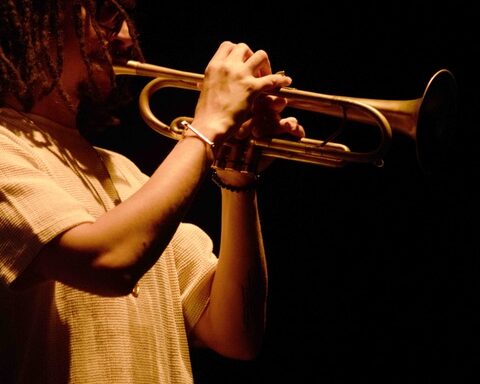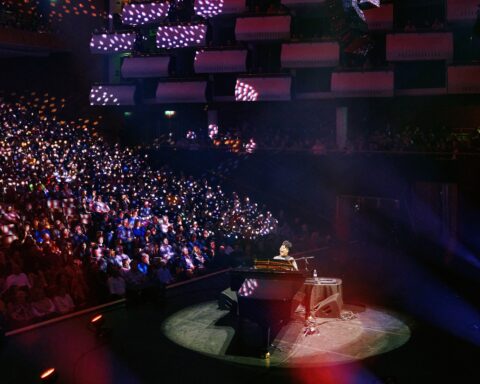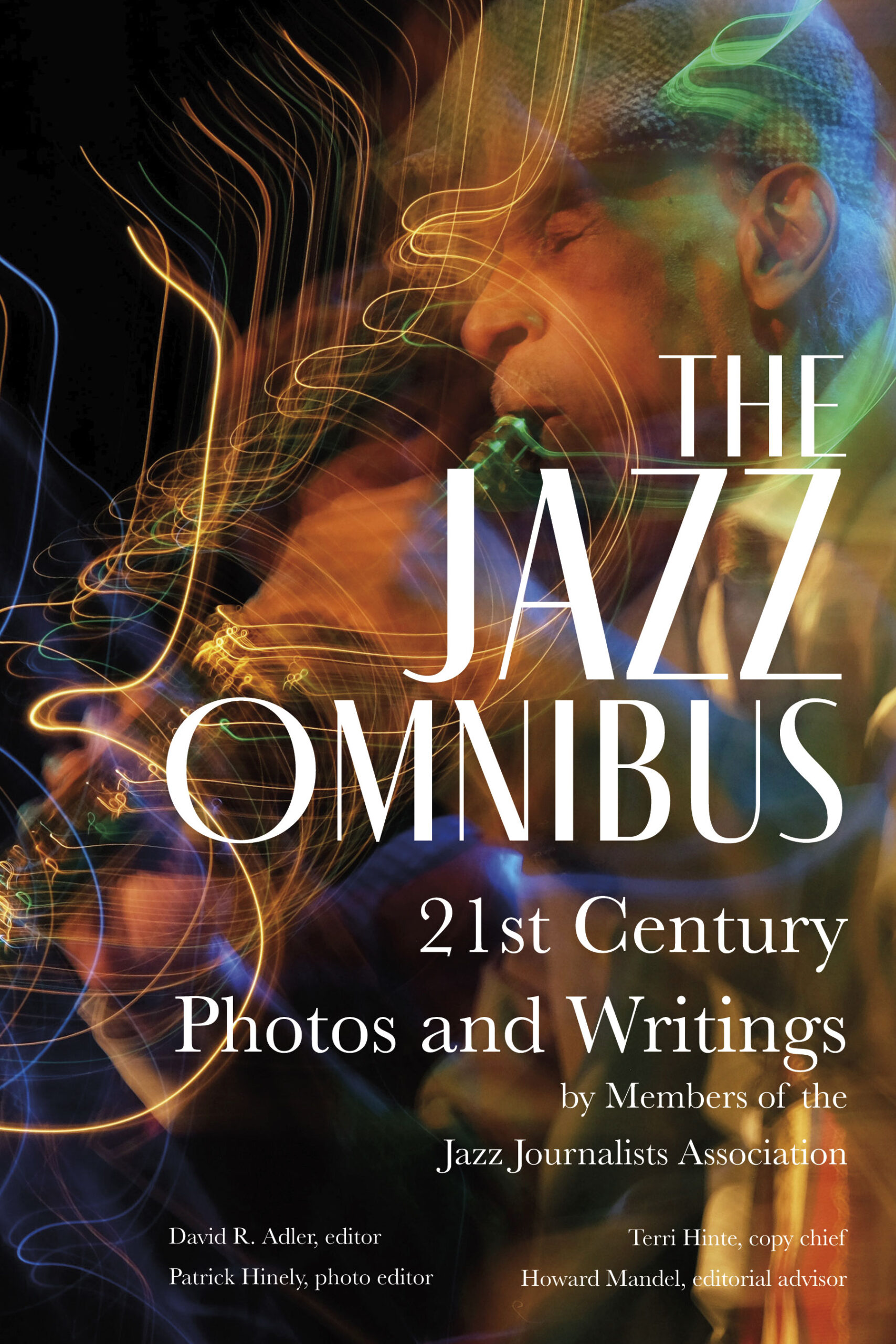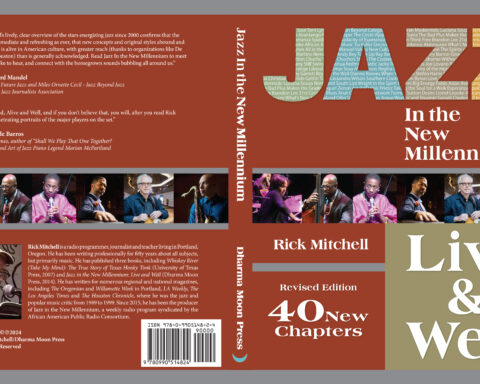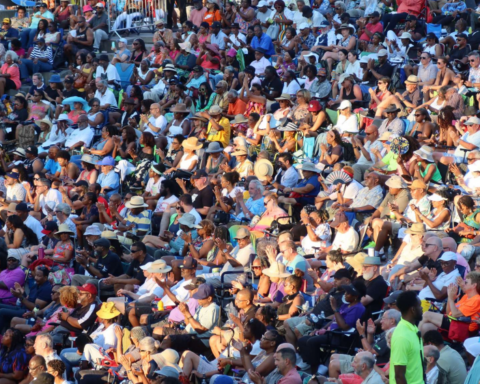If a woman writes about jazz, is she imposing a feminist act?
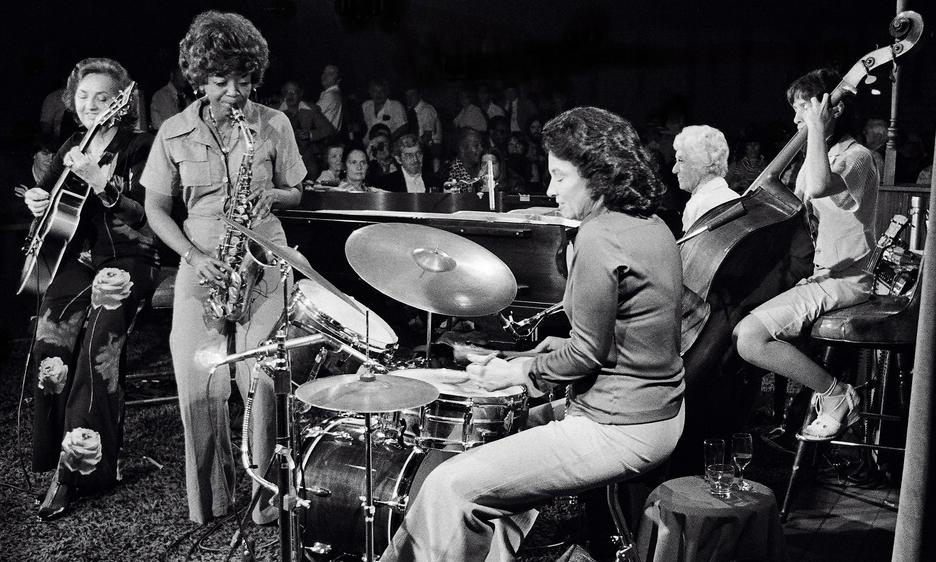
Feminism is a school of thought that vehemently fights for equality within the binary gendered society, along with intersections of race and LGTBQ communities, demanding that justice be served through the uplifting of women. Therefore: Is it a feminist act for a woman to simply attempt to express her voice in an acutely male-dominated jazz criticism community? Or is it only truly feminist when a woman embeds feminist theory into her jazz writing or chooses to solely write about women jazz musicians and composers?
With the overwhelming disparity in the number of women compared to men who grace the pages of traditional jazz publications and mainstream media, many questions yearn to be considered.
If there were more women writing about jazz, would a new collective tone arise over the status quo that male journalists have cultivated throughout the history of jazz criticism and documentation? Will the experience of navigating socio-political environments steeped in sexist cultural standards, deeply engrained societal pressures and emotionally fraught artistic landscapes offer virtually unexplored perceptions and observations that could potentially create a new and fresh voice in jazz journalism?
As women peer through the lens of patriarchal oppression and fight the existence of systemically structured forms of femininity, will there be a philosophical exploration of the way we interact with jazz? New feministic forms can come about through women’s experience of exclusivity, which carves our own unique histories and the desire to break new ground in the conversation of jazz and gender.
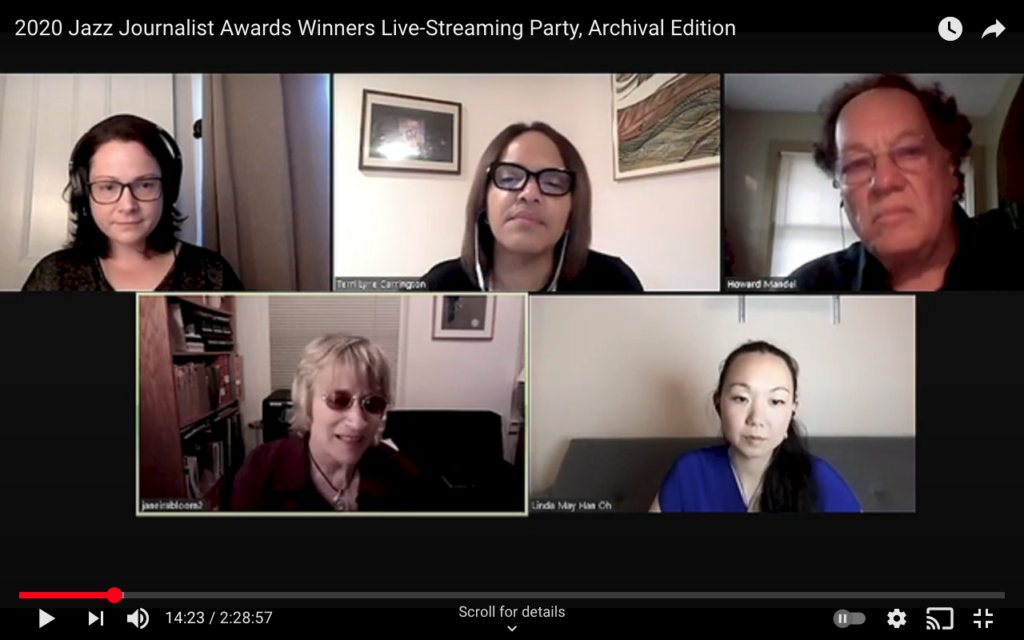
As girls, we are often encouraged to interact with the world through our feelings and intuition over our intellect, and are bred to withstand the constant presence of oppression which is linked to the silencing of women’s voices due to the maintenance of patriarchal power in musical realms. Patriarchal control can lead to women’s writing being dismissed and condescend to or simply erased, buried amid the majority of male voices who are published more frequently and at a higher volume than women.
There is no denying that a woman cannot separate herself from her emotive expression, the presence of sexism and the survival tactics she naturally employs throughout life. A women’s lens may embody emotional depth and interpret music in ways that are specific to our experiences.
For example, a woman may hear certain ornamentation in a jazz piece as a representation likened to a specific women’s experience like childbirth, while a dozen men’s reviews find the ornamentation to be overly dramatic or overstated and unnecessary, in their eyes, in order for the piece to flow in a “coherent” manner. The need for coherence, even within the most eccentric form of free jazz, is also an example of masculine jazz interpretation. What is coherent, what is acceptable and what is considered “good” will certainly evolve by broadening the pool of voices to include more women.
Should and would male jazz journalists enact feminist ideals by stepping back from their opportunities in order to give women more chances to write for competitive platforms? Can and will men contribute to the feminist cause by mentoring girls and women and opening doors that are often shut by gatekeeping? Are they advancing feminism simply by thanking women in jazz journalism for their patience with the unbalanced gender biases that exist within our work?
Ultimately, no one has to call themselves a feminist in order to amplify women’s voices. But it may behoove us to accept that a new way of writing, thinking, expressing and reviewing will inevitably emerge and evolve as we explore the challenges and idioms of inclusiveness.

Not all women are interested in directly challenging the status quo of jazz criticism, but our simple presence, which will hopefully become equal with that of men in the coming years, will manifest a new world of opportunity to create a globalized feminine perspective that is sorely needed.
We should also be sure to also include feminine identified non-binary writers and writers from every facet of the LGTBQ community, who can offer knowledgeable and more accurate interpretations to gay composers, improvisers and performers.
The only appropriate conclusion to this call for rumination and consideration is to also acutely insist on inclusivity and the exploration of the women’s and feminist lens in jazz criticism, and to express that the future will be the truest marker for our small community.
There have been small strides, but until the number of women and women of color are equal to the number of male voices, we will never know the fullest potential and expression of jazz music. The musicians deserve well-rounded feedback, women jazz composers deserve to be recognized as arrangers, composers and producers and reviewed in ways that understands the core of their experience and what may be just beneath the surface of their sound. Without women’s voices, we lose a large portion of the breadth of the music we all love, admire and revere.
Jordannah Elizabeth is a Baltimore-based writer and lecturer, founder of Feminist Jazz Review and editor-in-chief of Mutual Mentorship for Musicians.

